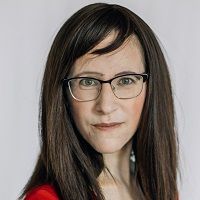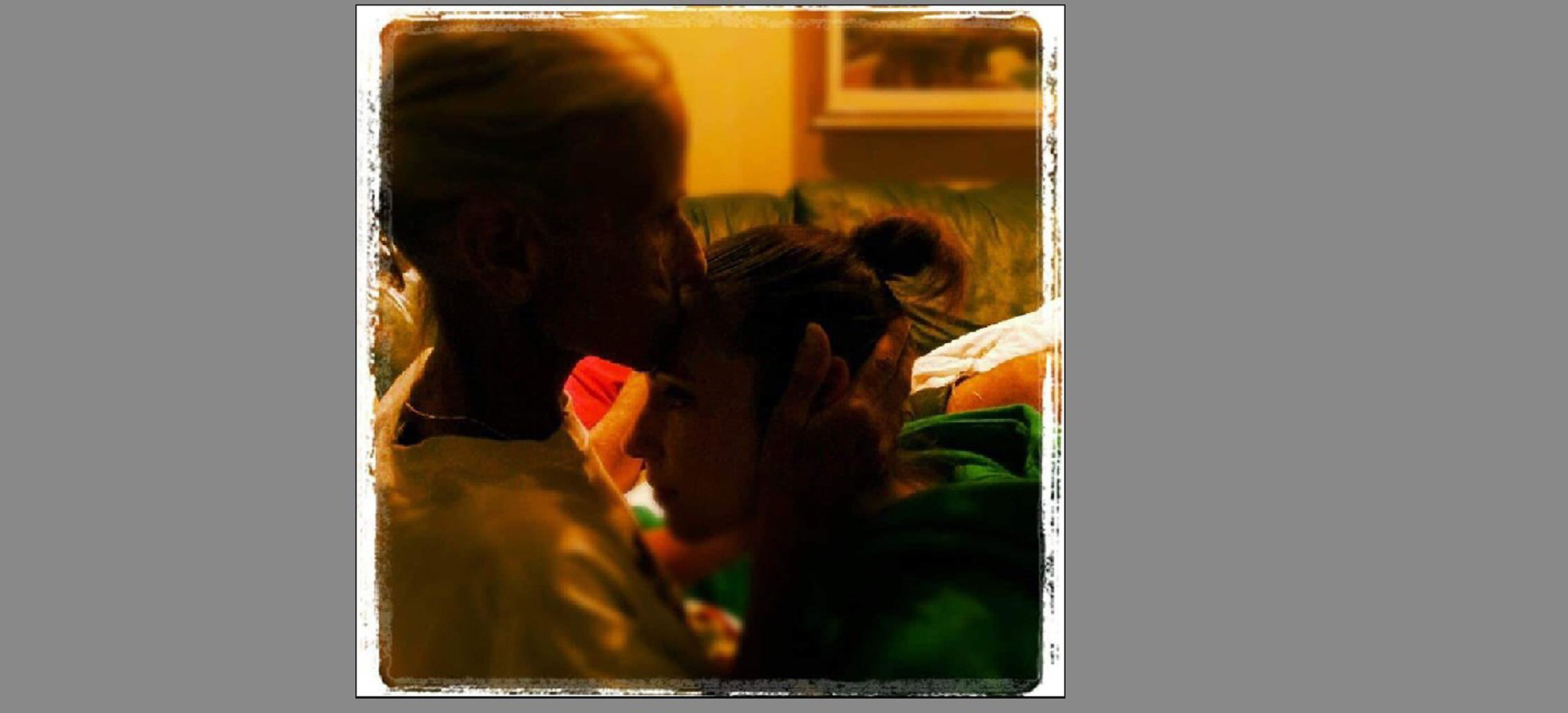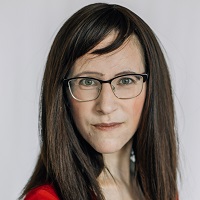Estate Planning Lessons from My Mother’s Cancer Diagnosis
As an estate planning attorney, I know that advance medical directives are critical – but my experience with my mother deepened my conviction to help others.


Profit and prosper with the best of Kiplinger's advice on investing, taxes, retirement, personal finance and much more. Delivered daily. Enter your email in the box and click Sign Me Up.
You are now subscribed
Your newsletter sign-up was successful
Want to add more newsletters?

Delivered daily
Kiplinger Today
Profit and prosper with the best of Kiplinger's advice on investing, taxes, retirement, personal finance and much more delivered daily. Smart money moves start here.

Sent five days a week
Kiplinger A Step Ahead
Get practical help to make better financial decisions in your everyday life, from spending to savings on top deals.

Delivered daily
Kiplinger Closing Bell
Get today's biggest financial and investing headlines delivered to your inbox every day the U.S. stock market is open.

Sent twice a week
Kiplinger Adviser Intel
Financial pros across the country share best practices and fresh tactics to preserve and grow your wealth.

Delivered weekly
Kiplinger Tax Tips
Trim your federal and state tax bills with practical tax-planning and tax-cutting strategies.

Sent twice a week
Kiplinger Retirement Tips
Your twice-a-week guide to planning and enjoying a financially secure and richly rewarding retirement

Sent bimonthly.
Kiplinger Adviser Angle
Insights for advisers, wealth managers and other financial professionals.

Sent twice a week
Kiplinger Investing Weekly
Your twice-a-week roundup of promising stocks, funds, companies and industries you should consider, ones you should avoid, and why.

Sent weekly for six weeks
Kiplinger Invest for Retirement
Your step-by-step six-part series on how to invest for retirement, from devising a successful strategy to exactly which investments to choose.
March 31 was a day of reflection for me, marking the 17th anniversary of the passing of Terri Schiavo, 13 days after being removed from a feeding tube on March 18, 2005, at the behest of a local court.
This capped a bitter, decade-long legal battle that involved Congress and even the president – and in the process, sparked a fierce national debate over end-of-life wishes in America, and the tragic depths to which familial conflict can reach when someone becomes incapacitated without having first completed an advance medical directive (also known as a living will).
For anyone in the estate planning profession, March 31 remains a meaningful date that symbolizes the “why” behind what we do. Having a complete estate plan isn’t just about leaving behind a legacy – it also allows the last days of life to be truly about our loved ones. The Terri Schiavo case is a constant, high-profile reminder that being able to say goodbye in a way that is in accordance with each person’s faith and values is not a given. In fact, 70% of Americans today still don’t have a will.
From just $107.88 $24.99 for Kiplinger Personal Finance
Become a smarter, better informed investor. Subscribe from just $107.88 $24.99, plus get up to 4 Special Issues

Sign up for Kiplinger’s Free Newsletters
Profit and prosper with the best of expert advice on investing, taxes, retirement, personal finance and more - straight to your e-mail.
Profit and prosper with the best of expert advice - straight to your e-mail.
My Own Family’s Story
The Terri Schiavo case also carries personal resonance for me. In October 2011, shortly after I began my career as a trusts and estates lawyer, my otherwise healthy mother was diagnosed with terminal pancreatic cancer. The news was shocking. While helping others plan their estates was my career, it suddenly became deeply personal. The memory of Terri Schiavo and her death less than a decade prior prompted us to make sure we fully understood what my mother’s wishes were.
As a great testament to her thoughtfulness and love for her family, my mother had already done much of the legwork when it came to setting her estate plan. Many people do not. Death is unpleasant to think about, but it’s a universal experience. Planning the decision-making over one’s property, healthcare and finances ahead of time in the event that one becomes incapacitated or passes away can prevent hardship like that suffered by Terri Schiavo from ever occurring.

My mother had a will, a durable power of attorney and an advance medical directive completed or nearing completion at the time of her diagnosis. This was all very helpful, as she (and really, our family) wasn’t forced to begin the planning process from scratch during this difficult time. I can attest from my time as an estate planning lawyer that it can be particularly challenging to plan when someone’s health is already in the declining stages.
Grateful for Meaningful Moments
All of this allowed us to spend our remaining time together deepening our bond and having conversations we might not otherwise have had about life. It also helped prepare us for what was among the most important elements in the Terri Schiavo case: the role of faith in relation to end-of-life care and what happens to a person’s body as they take their last breaths and after they pass away.
Often, family members aren’t fully aware of what these wishes are, or how important they are. Terri Schiavo’s Catholic faith played prominently in the contested nature of her end-of-life healthcare decisions, which became a tragic, constant battle of push and pull that ended in a courtroom rather than a living room.
My mother was similarly part of a faith-based community, and she placed great importance on what her end-of-life care would look like, and how her body would be treated in her final moments and after she passed away. The rest of my family has varying connections to faith, and without her directive, we wouldn’t have known all of the things she wanted, what customs to follow, or even what questions to ask.
On a Mission
Having an advance healthcare directive is an extremely important component of an estate plan, but to many individuals it can be prohibitively scary to even start thinking about incapacity or death. To get started, take out a piece of paper and a pencil. Take a deep breath. Then, jot down responses to the following prompts:
- What matters to me is [. . . ]
- If I were having a good day, I would be doing the following [. . .]
Considering simple prompts like these can help you get in the mindset to address the harder choices you'll confront when you are presented with specific decision-making in your advance medical directive form, whether that form originates with an attorney, online self-help solution, faith-based resource or healthcare professional.
Having studied the Terri Schiavo case, I’ve always made sure those close to me take the necessary measures to prevent a repeat of her tragic experience. That’s why I’ve made it my goal to help others with estate planning as a labor of love, and to use my lived experience as a testament to its importance.
Because of the fact that my mother planned her estate before her diagnosis, we were able to enjoy her last 19 months as much as possible – with frequent get-togethers and funny “remember when” stories – laughing, loving and enjoying each other’s company because we knew the difficult and unpleasant questions were already answered.
Profit and prosper with the best of Kiplinger's advice on investing, taxes, retirement, personal finance and much more. Delivered daily. Enter your email in the box and click Sign Me Up.

Allison L. Lee is the Attorney-at-Law, Director Trusts & Estate Content for FreeWill, a mission-based public benefit corporation that partners with nonprofits to provide a simple, intuitive and efficient online self-help platform to create wills and other estate planning documents free of cost. Through its work democratizing access to these tools, FreeWill has helped raise billions for charity. Prior to joining FreeWill, Allison spent more than a decade in private practice.
-
 Betting on Super Bowl 2026? New IRS Tax Changes Could Cost You
Betting on Super Bowl 2026? New IRS Tax Changes Could Cost YouTaxable Income When Super Bowl LX hype fades, some fans may be surprised to learn that sports betting tax rules have shifted.
-
 How Much It Costs to Host a Super Bowl Party in 2026
How Much It Costs to Host a Super Bowl Party in 2026Hosting a Super Bowl party in 2026 could cost you. Here's a breakdown of food, drink and entertainment costs — plus ways to save.
-
 3 Reasons to Use a 5-Year CD As You Approach Retirement
3 Reasons to Use a 5-Year CD As You Approach RetirementA five-year CD can help you reach other milestones as you approach retirement.
-
 The 4 Estate Planning Documents Every High-Net-Worth Family Needs (Not Just a Will)
The 4 Estate Planning Documents Every High-Net-Worth Family Needs (Not Just a Will)The key to successful estate planning for HNW families isn't just drafting these four documents, but ensuring they're current and immediately accessible.
-
 Love and Legacy: What Couples Rarely Talk About (But Should)
Love and Legacy: What Couples Rarely Talk About (But Should)Couples who talk openly about finances, including estate planning, are more likely to head into retirement joyfully. How can you get the conversation going?
-
 How to Get the Fair Value for Your Shares When You Are in the Minority Vote on a Sale of Substantially All Corporate Assets
How to Get the Fair Value for Your Shares When You Are in the Minority Vote on a Sale of Substantially All Corporate AssetsWhen a sale of substantially all corporate assets is approved by majority vote, shareholders on the losing side of the vote should understand their rights.
-
 How to Add a Pet Trust to Your Estate Plan: Don't Leave Your Best Friend to Chance
How to Add a Pet Trust to Your Estate Plan: Don't Leave Your Best Friend to ChanceAdding a pet trust to your estate plan can ensure your pets are properly looked after when you're no longer able to care for them. This is how to go about it.
-
 Want to Avoid Leaving Chaos in Your Wake? Don't Leave Behind an Outdated Estate Plan
Want to Avoid Leaving Chaos in Your Wake? Don't Leave Behind an Outdated Estate PlanAn outdated or incomplete estate plan could cause confusion for those handling your affairs at a difficult time. This guide highlights what to update and when.
-
 I'm a Financial Adviser: This Is Why I Became an Advocate for Fee-Only Financial Advice
I'm a Financial Adviser: This Is Why I Became an Advocate for Fee-Only Financial AdviceCan financial advisers who earn commissions on product sales give clients the best advice? For one professional, changing track was the clear choice.
-
 I Met With 100-Plus Advisers to Develop This Road Map for Adopting AI
I Met With 100-Plus Advisers to Develop This Road Map for Adopting AIFor financial advisers eager to embrace AI but unsure where to start, this road map will help you integrate the right tools and safeguards into your work.
-
 The Referral Revolution: How to Grow Your Business With Trust
The Referral Revolution: How to Grow Your Business With TrustYou can attract ideal clients by focusing on value and leveraging your current relationships to create a referral-based practice.